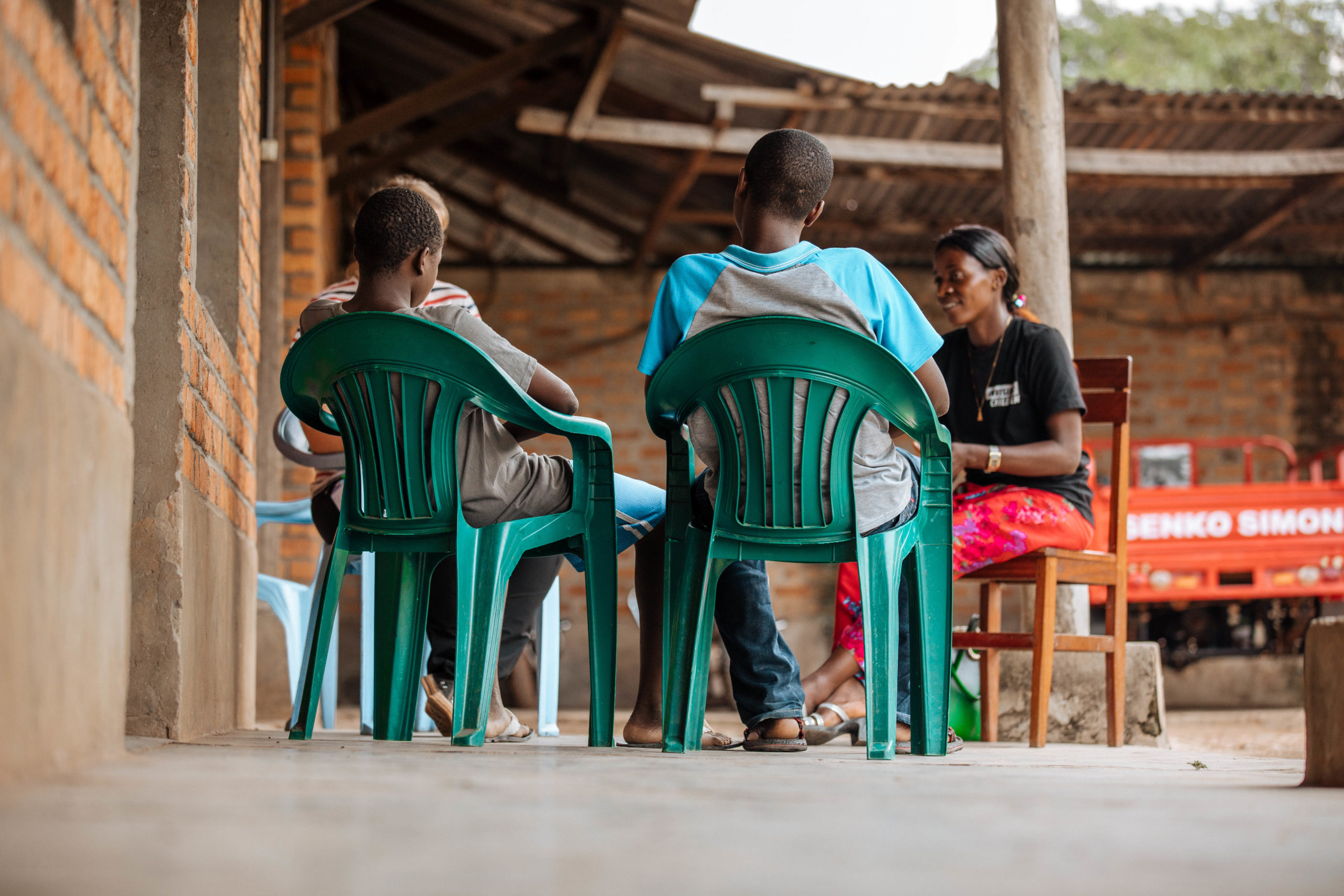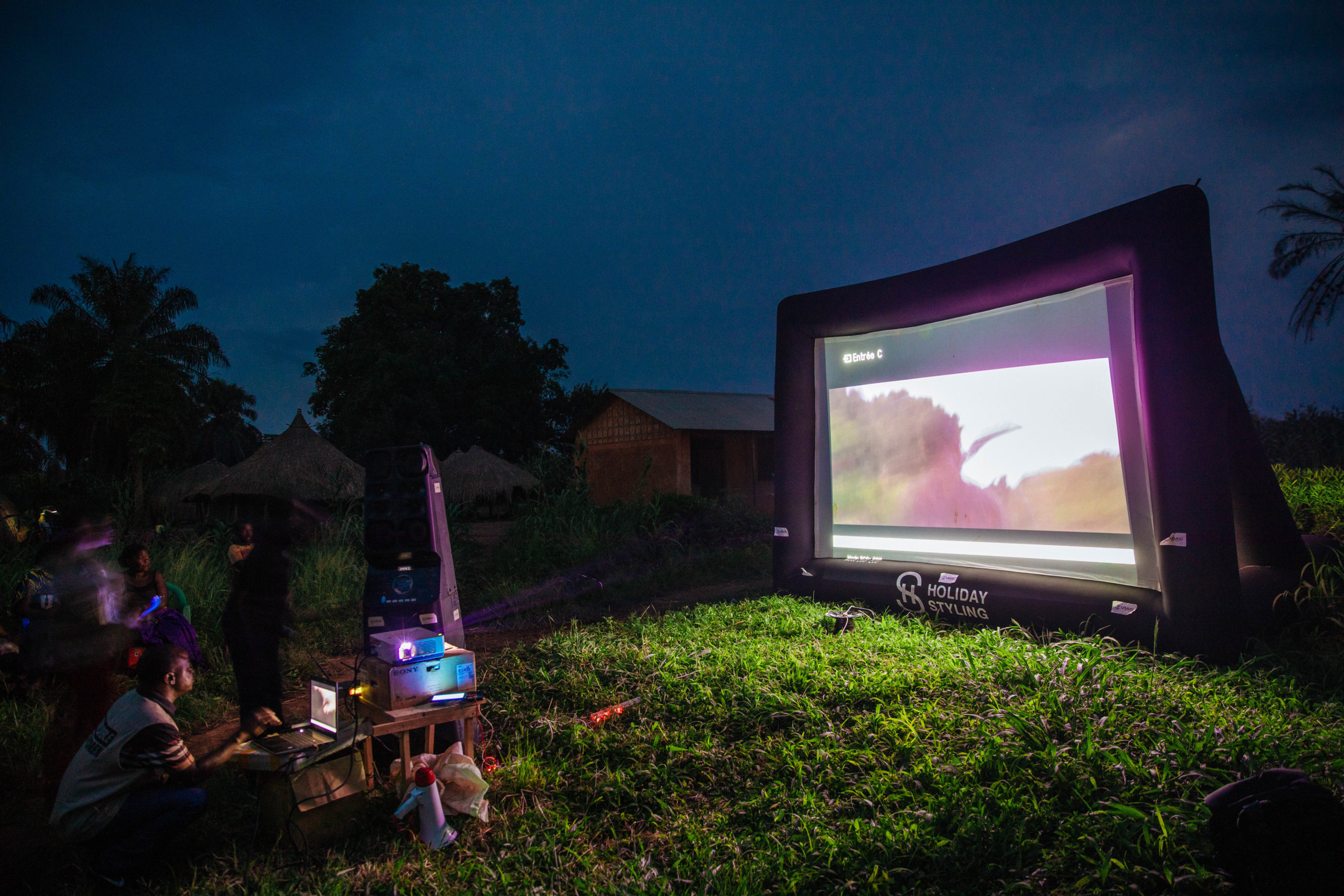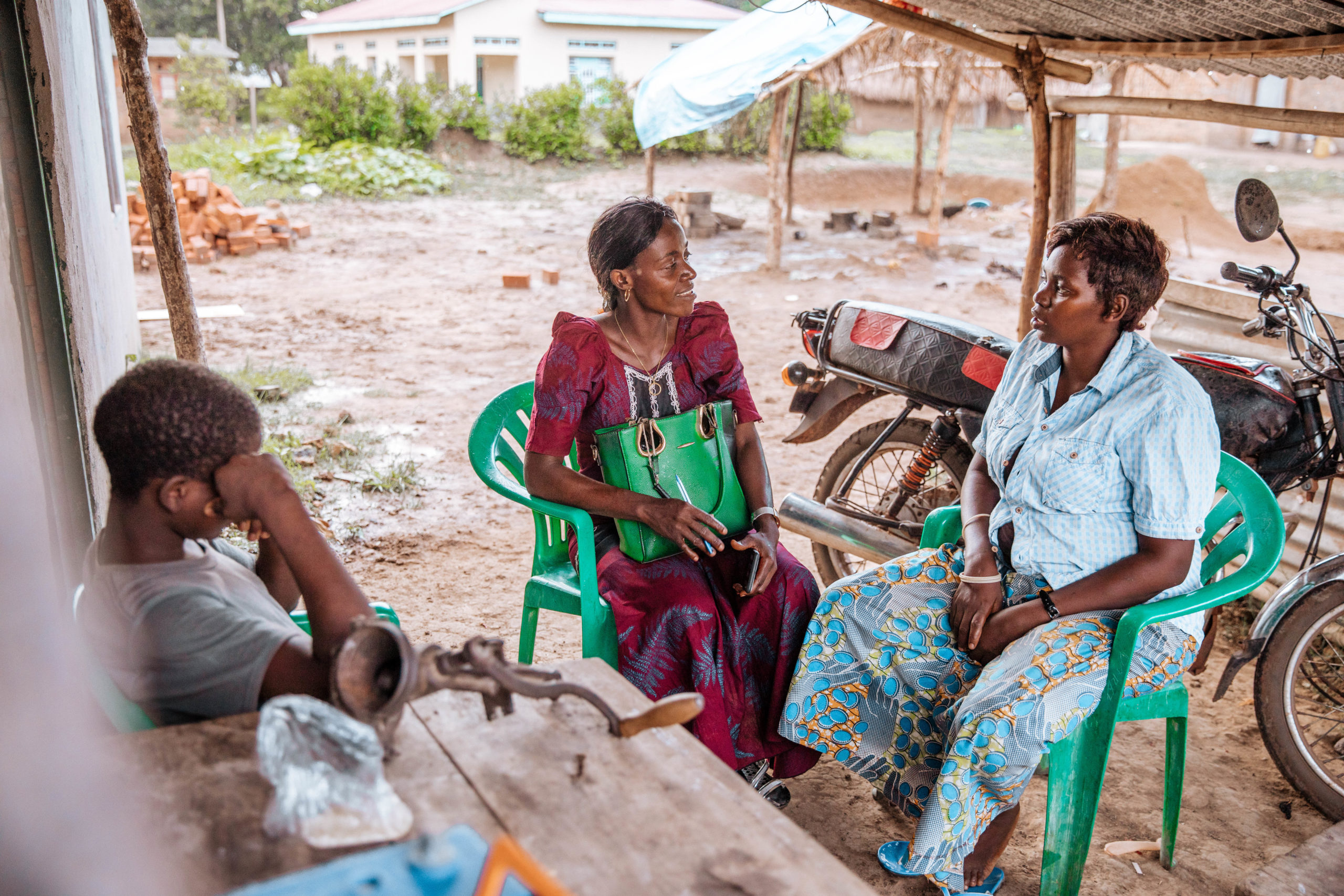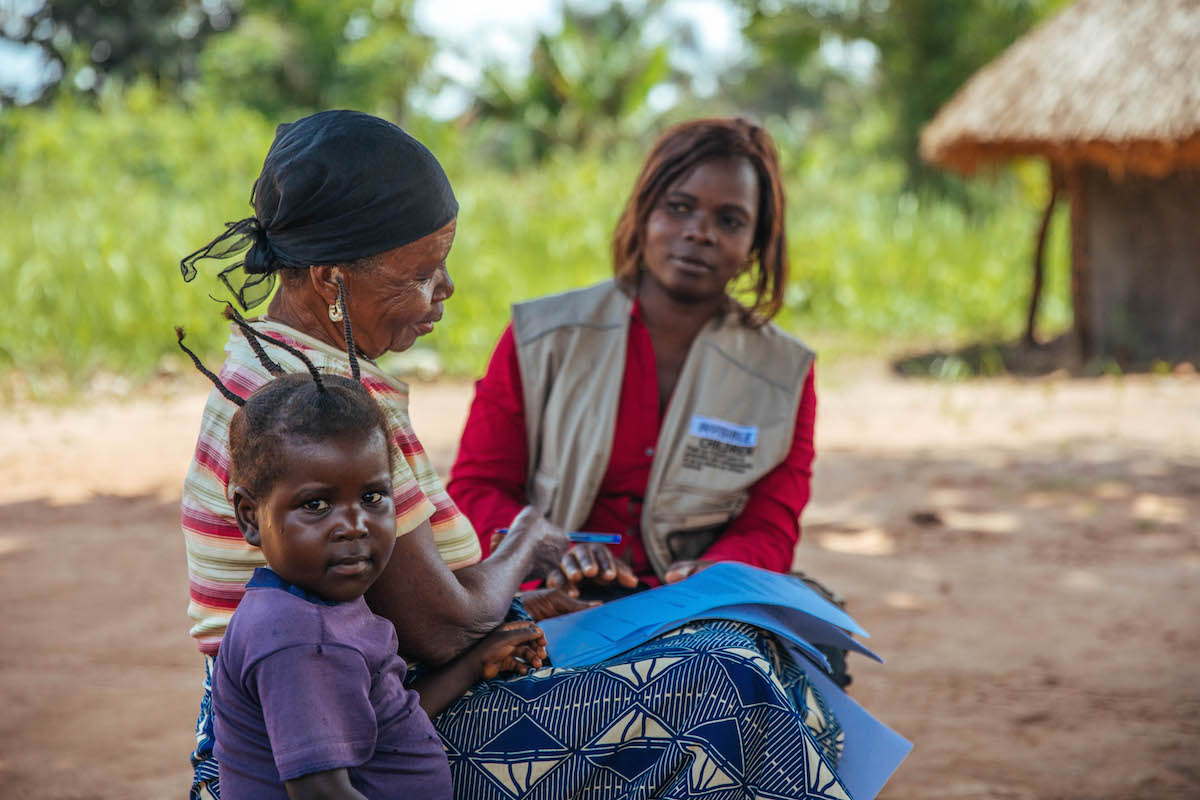In recent months, Invisible Children has begun implementing projects to equip Central African communities in some of the most isolated areas of the Central African Republic (CAR) and the Democratic Republic of Congo (DRC) with tools to address the psychosocial needs of their communities. With a focus on communities impacted by prolonged insecurity, we are equipping local volunteers and health centers to raise awareness and provide basic trauma healing support. We are also providing individuals experiencing more severe symptoms of trauma with specialized care. Already, these programs are having a powerful impact.
Your donations help us support Central African communities prevent and recover from violent conflict.
In remote regions of central Africa, that have been affected by cycles of violent conflicts for decades, recovery and healing are essential elements in the peacebuilding process. However, decades of neglect and insufficient national infrastructure have left these communities with very limited access to mental health and psychosocial information and support. As a result, trauma and its social components are often left under-addressed, which leaves individuals and communities less resilient to the economic and social pressures that can fuel violence.

Increased access to psychosocial services are known to increase community resilience and positively impact peacebuilding processes and violence prevention work. As part of our USAID-funded Community Resilience in Central Africa (CRCA) Activity, Invisible Children is taking steps to fill the gap of much needed mental health services.
Through our community-centered approach, we have paired Invisible Children psychologists with leaders and volunteers from local communities, internally displaced person (IDP) camps, and peace committees to build their capacity to recognize signs of trauma and support the mental health of their communities. In addition to educating and training local volunteers, we are also working closely with local medical centers in CAR and DRC to train health counselors and other medical staff on how to best support patients experiencing symptoms of trauma.
Since March 2020, we have conducted 108 trauma awareness sessions with 4,791 local participants and trained 76 local volunteers to recognize symptoms of trauma, provide Psychological First Aid and peer support, refer high needs individuals to CRCA-supported psychosocial services, and promote positive coping skills to people with non-emergency needs.
One of the ways we engage community members is through our innovative mobile cinema program. During a socially distanced screening of our mobile cinema film They Came at Night in May, a CRCA psychologist facilitated a discussion about the warning signs of trauma that may be observed in escapees from armed groups. This session reached over 1,200 local community members, equipping all of them to help survivors of armed group violence recover.

Volunteers are also trained to identify individuals with severe symptoms of trauma and refer them to Invisible Children psychologists for specialized care. So far, 47 high-needs individuals were referred by trained volunteers for specialist care. In total, 317 individuals have received counseling from psychological specialists through CRCA, and many have reported positive results. While insecurity in the region has prevented follow-up visits with some individuals, more than 40% of all discharged cases have reported positive impacts on their mental health, including one woman living in an IDP camp in eastern CAR.
In June, Invisible Children-trained volunteers from the camp recognized that this woman was experiencing severe symptoms of trauma and referred her to CRCA psychologists for follow up. She had fled from her home community in 2018 following an armed group attack in which her husband was killed. Later, she gave birth to a child conceived by rape. Following multiple individual counseling sessions led by CRCA psychologists, she communicated the following:
“I thank you for helping me express my emotions which, until now, had been blocked inside me. I decided to seek your help following a [CRCA] psychoeducation session with psychologists and the counselors chosen in my community. They said that keeping psychological pains bottled up inside yourself aggravates symptoms. I discovered that was my case because, since I’ve opened up to CRCA counselors, I’ve opened up to my friends, and I’ve played with my child for the first time in a long time. I no longer feel intense anger against my aggressor because the child brings me comfort, because he looks like my late husband. My body is more relaxed, and I sleep and eat better.”

Local volunteers are also trained to integrate the social aspect of mental health care into the support they provide their communities. This is accomplished through volunteer-led psycho-education sessions, which many communities have adapted to door-to-door campaigns and small group sessions amidst the COVID-19 pandemic, as well as through social support to those experiencing psychological distress.
For example, Invisible Children-trained volunteers in the Central African community of Obo helped one woman receiving psychological care to address economic needs as well. When an armed group attacked her community in 2017, the 30-year-old woman fled with her family to Obo. Shortly after, she lost her child and husband to sickness. While struggling to support her other children, recent armed group activity in the area caused her to experience heightened physical and psychological symptoms of trauma. She was referred to CRCA psychosocial services, who helped her receive adequate medical attention at the local hospital.
Recognizing that trauma healing is facilitated by social stability, our partnering psychosocial assistants provided her with counseling services and advice on how to propose for community members to let her farm their land in return for a fee. With their support, she developed a plan which was accepted by local residents who provided her a plot of land to cultivate and provide for her children. In May, as she was showing CRCA her crops, she said,
“Before, I was depressed and discouraged. Now, I have a new vision of my life, and new objectives. I did not think this was possible.”

Although communities in this region continue to face violence, insecurity and new challenges from the COVID-19 pandemic, there is a lot of hope for the future. We’re excited to continue working alongside these communities and to expanding our psychosocial programming in other parts of the region through the USAID-funded CRCA Activity and with your support.
Make a donation today to support community-based programs, like mental health and psychosocial support, that equip Central African peacebuilders to build a safer, brighter future.
The programs described in this blog are made possible with the support of the American People through the United States Agency for International Development (USAID). The contents of this post are the sole responsibility of Invisible Children and do not necessarily reflect the views of USAID or the United States Government.

Think people should hear about this?